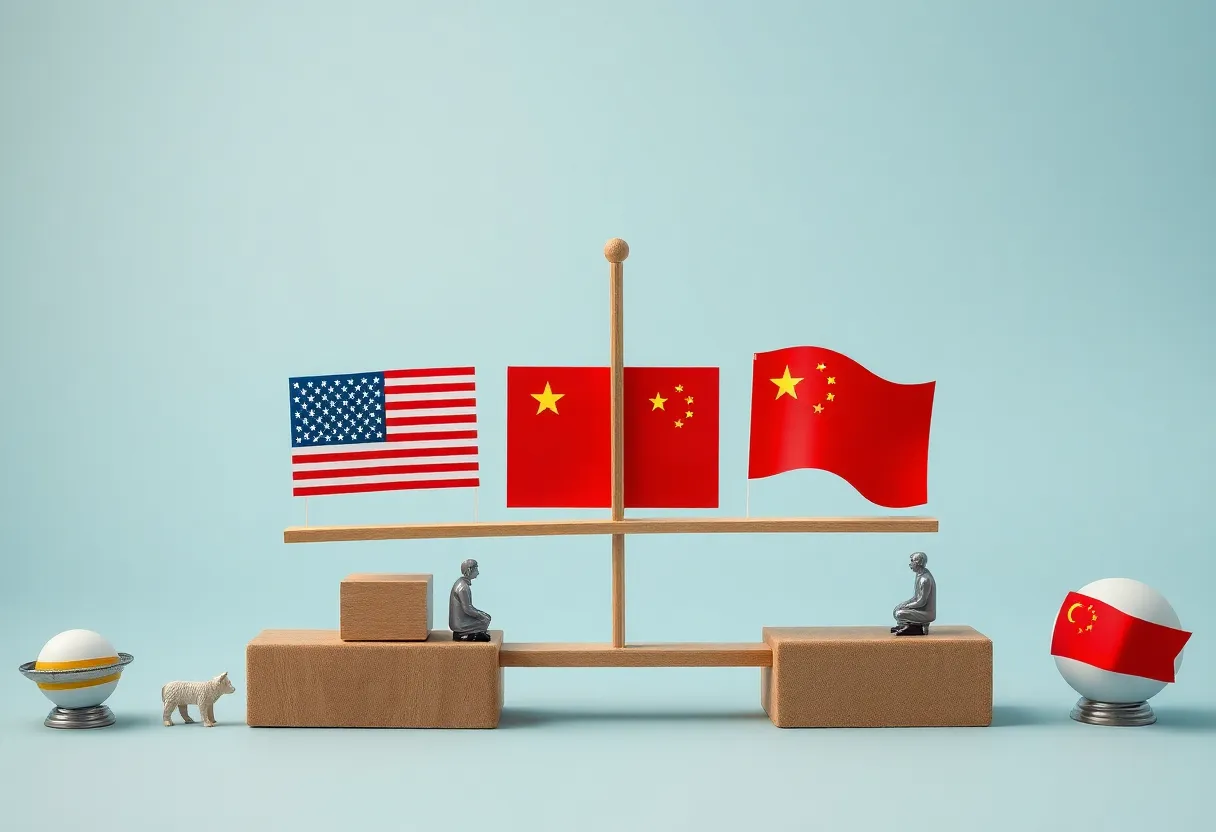News Summary
China has issued a stern warning regarding trade agreements with the US, emphasizing the need for fairness as countries like India prepare for negotiations. The Ministry of Commerce highlighted concerns over potential agreements that could compromise China’s interests, stressing the importance of balanced bilateral relations. As both the US and China compete for favorable trade deals globally, economic forecasts indicate looming challenges, with projections for China’s growth significantly downgraded. This dynamic landscape raises questions about collaboration and independent manufacturing in the future.
China Sends Cautionary Message on US Trade Deals
In the midst of an ongoing global trade war, China is making its stance clear regarding trade agreements with the United States. Recently, the Chinese government issued a friendly but firm reminder to other nations—stay vigilant about any trade deals with the US that could come at the expense of China’s interests. This warning becomes particularly notable as Indian trade negotiators prepare for their visit to the US scheduled for April 23. Their discussions will involve navigating the complexities of potential trade agreements with the US.
Insights from China’s Commerce Ministry
The Chinese Ministry of Commerce has also hinted that it will consider taking “reciprocal measures” if any agreements are made that compromise China’s interests. This stern yet amicable reminder indicates that China is keen on protecting its position in the global market. The Ministry further criticized any moves by other countries that might sacrifice their own interests for the allure of temporary benefits from the US. In essence, they emphasize that fairness and justice should be foundational principles in trade negotiations.
Global Trade Dynamics
As the international trade landscape evolves, both the US and China are actively pursuing trade agreements with countries within their respective spheres of influence. While the US is focused on driving negotiations with countries like India, Japan, and South Korea, China is targeting deals with Vietnam, Malaysia, and Cambodia. This ongoing competition illustrates just how intertwined global trade has become, and it’s not just about one nation winning over another—it’s about maintaining a fair playing field for everyone.
China’s Economic Outlook
In a recent update, Goldman Sachs adjusted China’s GDP growth forecasts in light of the continuing trade tensions and tariff impacts, projecting a growth rate of only 4% by 2025 and 3.5% by 2026. Such forecasts reveal the significant effects that the current trade war has on global economic health. This situation has implications for multiple countries, including increased scrutiny over inflation rates, as noted by the Federal Reserve Chair, who affirmed that new US trade policies would likely boost inflation temporarily.
Negotiating New Deals
Looking at the potential for future agreements, the US aims to boost bilateral trade with India. The targets are ambitious, aiming to increase current trade levels from $191 billion to a whopping $500 billion by the year 2030. Experts believe the first phase of this trade deal could be wrapped up by Autumn 2025. As negotiations heat up, India’s Ministry of Commerce is strengthening its NAFTA division to better manage bilateral relations not only with the US but also with Canada and Mexico.
The Importance of Independent Manufacturing
In light of these developments, trade experts are advising countries like India to focus on developing a strong independent manufacturing base while still adhering to WTO norms. With manufacturing being a vital cog in the global supply chain—especially for industrial and consumer goods—this strategy could prove beneficial in the longer term.
Collaboration for Future Trade
As this trade dialogue continues, even Chinese President Xi Jinping has encouraged broader cooperation during his recent trip to Vietnam. He urged nations to collaborate against unilateral actions and maintain strong support for the global free trade system. This sentiment may resonate with many countries as they navigate the complexities of negotiating their own trade deals.
In sum, as both the US and China jostle for favorable trade agreements in a shifting landscape, countries around the world are reminded to keep China’s position in the mix. This ongoing trade competition and the operations at play will undoubtedly shape the future of global commerce.
Deeper Dive: News & Info About This Topic
- Deccan Herald: Modi, Vance Welcome Progress on US-India Trade Pact
- Hindustan Times: India-US Finalise Terms for Trade Deal
- Times of India: India-US Trade Deal May Become a Model for Future Agreements
- Reuters: India’s Modi Hosts JD Vance Under US Tariffs Shadow
- Wikipedia: International Trade







